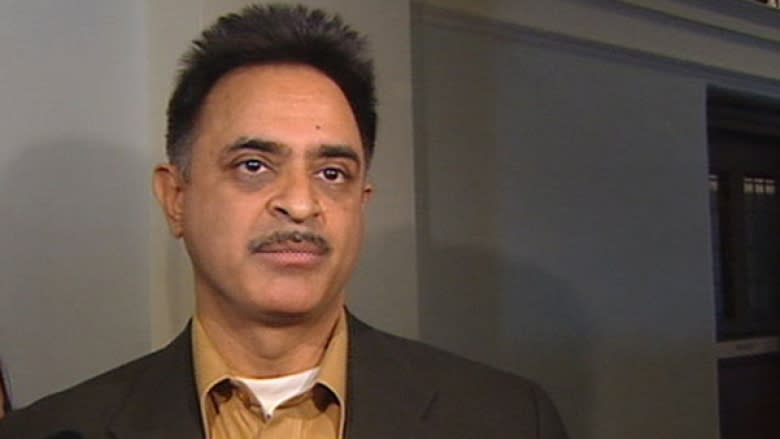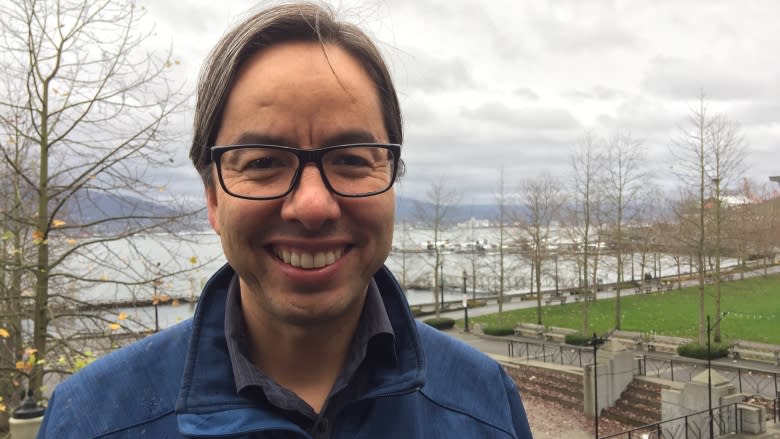Political nominations may be democratic, but do they work?
He is young, progressive, and on paper, a perfect candidate for the B.C. NDP. Aaron Sam is the sort of young lawyer that is well liked and can help a party present a fresh set of ideas.
So why is the First Nations leader not the party's candidate for Fraser-Nicola in the upcoming provincial election?
Critics say the answer is open nominations.
Last weekend, the B.C. NDP membership of the Fraser-Nicola riding voted for Harry Lali. The former MLA was a known entity to the party faithful, having served the community before as the MLA, losing by 754 votes in 2013.
But NDP leader John Horgan asked Lali to back away and allow Sam a clearer path to victory. Horgan and the party were looking for a First Nations candidate that could help sell the NDP's pitch that it will take the province in a new direction.
Lali, who was first elected in 1991, is seen less as a new way forward and more as part of the NDP's past. But when asked to back away, Lali refused, arguing he was the best choice for the constituents even though he was not the leader's first choice.
"I was the number one choice of the people in the constituency," said Lali. "The essence of democracy is being able to choose your own candidate at the constituency level."
So how did Lali win?
Simply put, Lali got the most votes from the party membership. The answer is that open nominations often reward good political organizers and not necessarily those with the best ideas.
The way nomination meetings work is this: the only people allowed to vote at a nomination meeting are those with an active party membership by a certain cut-off date.
That means the candidates who are often most successful are the ones who can not only sign up the most members but then ensure that they get to vote.
"I don't think there is any doubt that leaving the selection up to the grassroots encounters a whole range of systemic biases against young candidates, against candidates form certain minorities," said University of the Fraser Valley political scientist Hamish Telford.
"That is why it is important to leave room to allow the leaders to choose a certain number of candidates to have a balanced team for the elections."
Does the system work against best candidate?
In electoral politics, the best candidate is the one who can get the most votes.
But in a nomination battle, unlike a general election, it tends to lean toward most aggressive organizers.
As the chief of the Lower Nicola Indian Band, Sam is no stranger in his community. He has been a practising lawyer for more than a decade, has played a role in crucial federal and provincial negotiations and was chief when his band's school installed solar panels to help power it.
But none of those achievements apply directly to the need to sign up members in a community and then get them to vote. That is something that Lali has lots of experience with, and he knows the political system.
The NDP rules put all the the power in the hands of the riding association and the members who show up at the nomination meeting.
"A nomination becomes a numbers game. Whoever can organize better, whoever can sign up the most members and actually get them to the polls, that is how nominations are won," said Lali.
B.C. Liberals do it differently
Under B.C. Liberal Leader Christy Clark, more power has been put into the hands of the party's leadership. Rules allow for election campaign co-chairs Todd Stone and Rich Coleman to pick certain candidates, often labelled as star candidates, without facing an open nomination.
For example, former Haisla Nation chief Ellis Ross was not required to run in a contested nomination in the riding of Skeena.
"There is a real challenge for all political parties. On one hand, parties want to be committed to the grassroots. On the other hand, a leader wants to assemble who he or she thinks is the best team for an election campaign," said Telford.
The NDP does have other ways to balance out its slate of candidates, including an equity mandate that makes it easier for women and other minorities to seek political office.
As for the future of nomination meetings, don't expect any change. The B.C. NDP is proud of its grassroots approach that allows every member a chance to vote for their local candidate.
For hopeful politicians like Sam, it just means they need to figure out how to sign up more members and how to get those members out to vote.



